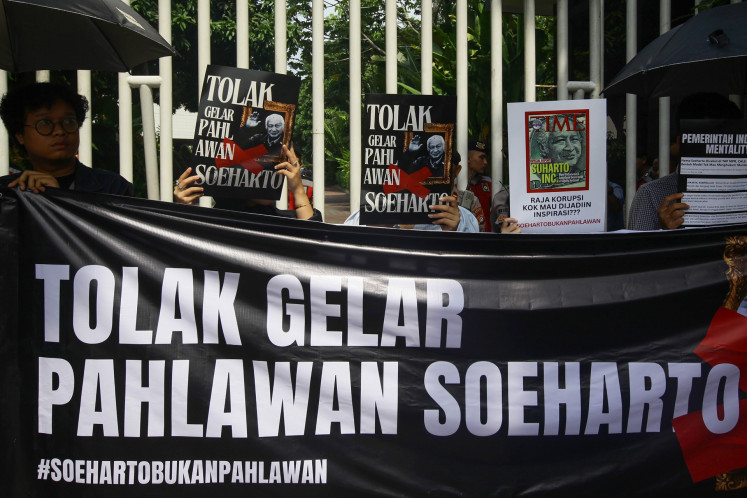Popular Reads
Top Results
Can't find what you're looking for?
View all search resultsPopular Reads
Top Results
Can't find what you're looking for?
View all search resultsJakarta shuns Singapore new migrant levy increase
Indonesia has voiced concern at Singapore’s move to increase levies for professional foreign workers, saying the city-state could hurt its commitment to easing the flow of skilled migrants under ASEAN economic blueprints
Change text size
Gift Premium Articles
to Anyone
I
ndonesia has voiced concern at Singapore’s move to increase levies for professional foreign workers, saying the city-state could hurt its commitment to easing the flow of skilled migrants under ASEAN economic blueprints.
Effective July 1, Singapore will impose a levy increase of S$10 to $250 (US$7.10 to $177.70) a month by 2012, depending on the sector skilled migrants work in.
The current levy ranges from S$150 to $470. The new measure was adopted in an effort to protect the local workforce during a double-digit economic downturn.
“We want the Singaporean government to make sure the new policy will not hurt its commitment to easing the flow of skilled migrants as laid out in the ASEAN economic blueprints,” said a high-ranking Foreign Ministry official, speaking on condition of anonymity.
Singapore hosts around 16,000 skilled migrants from Indonesia, says the Indonesian Embassy in Singapore. Foreigners constitute more than 30 percent of the city-state’s workforce, most from around Asia.
“We will look into the matter together because Singapore also hosts many skilled migrants from other ASEAN countries,” the official said.
Singapore had initially mulled imposing quotas on foreign workers, but switched to the levy hike, which it deemed would be more effective in discouraging employers from hiring foreign workers.
Last weekend, ASEAN economic ministers wrapped up a meeting in Malaysia, reiterating their commitment to regional integration by 2015, despite dozens of protectionist measures adopted by individual countries to ride out the financial crisis.
“The ASEAN economic community is a political commitment that could be easily compensated for by the government when they encounter domestic pressure,” said Tantowi Yahya, a lawmaker from the House of Representatives’ Commission I, overseeing defense and foreign affairs.
“If ASEAN wants to be taken seriously, it should have come up with an agreement from the very beginning, not a commitment. How can Indonesia push Singapore to ease foreign workers’ mobility based on a commitment?”
Centre for Strategic and International Studies political researcher Lina Alexandra said ASEAN governments were weak when it came to educating people about political deals reached with other countries.
“All ASEAN governments should make their own people aware about the arrangements before they go on to sign them,” she said. “This way, governments wouldn’t have to yield to domestic pressure at the expense of regional commitments.”
She cited the recent renegotiation proposal by Indonesia over the China-ASEAN Free Trade Agreement, with the deal already in place.
Jakarta proposed a delay on annulling some tariffs after businesses complained the flow of cheap goods from China would undercut them.
Silvia, an Indonesian who has worked for two years in a consultancy in Singapore, said the new levy was undesirable because it would hurt local job market competition.










